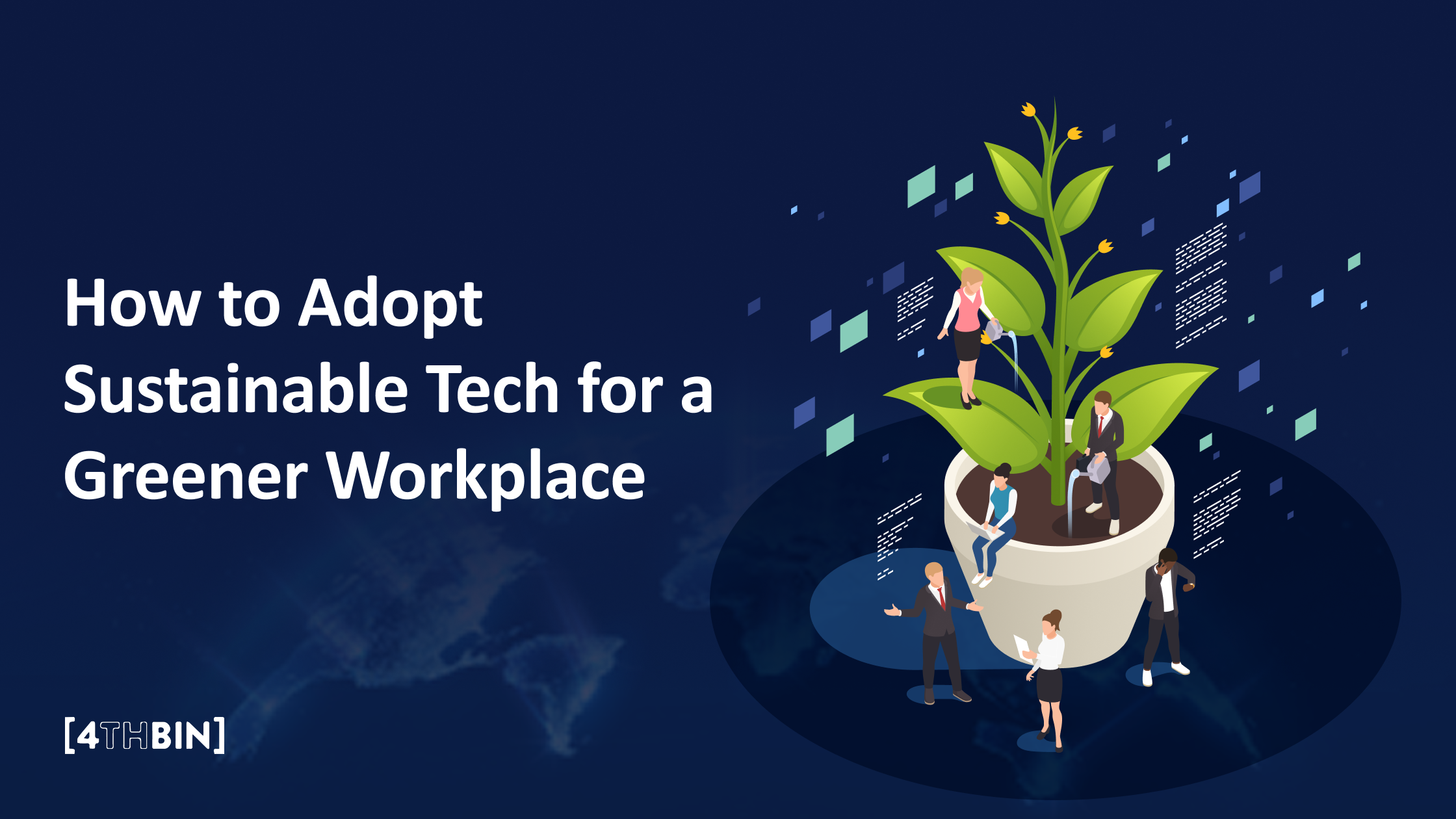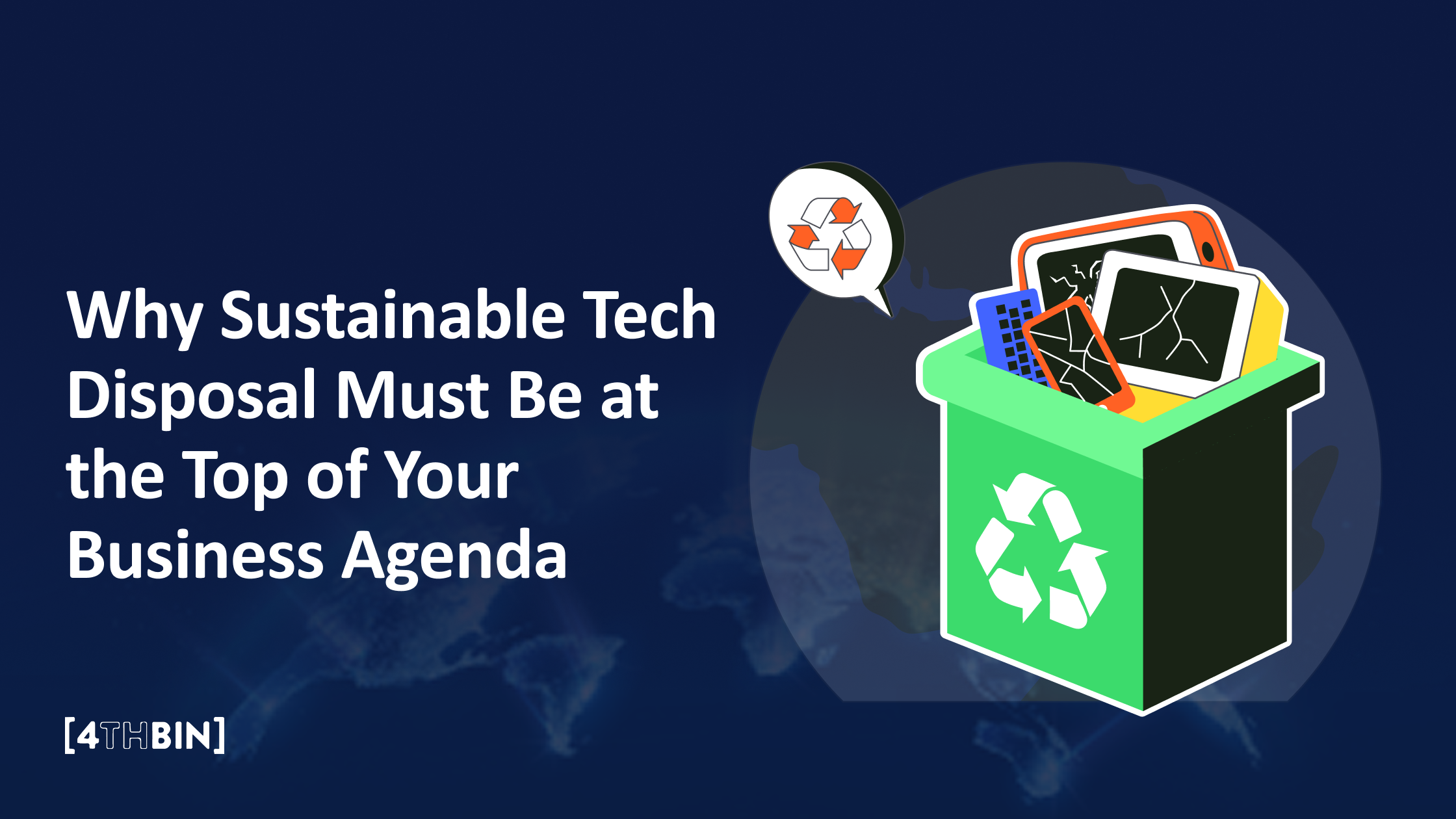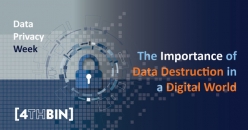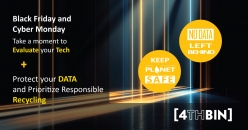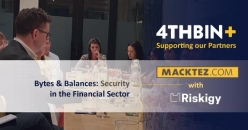What Does Sustainability Mean for Consumers & Your Business?
What drives someone to choose one brand over another? Increasingly, the answer is sustainability.
Sustainability is a core part of how people choose what and who to buy from. Across industries, consumers, especially younger generations, are thinking more about the environmental and social impact of their choices.
A report found that 73% of Gen Z are willing to pay more for sustainable products, and that mindset is growing across all age groups. Whether they’re choosing recyclable packaging, supporting transparent brands, or cutting down their carbon footprint, today’s consumers are actively looking for companies that share their values.
That awareness doesn’t stop at what they buy—it also extends to what they throw away. In our hyper-connected world, we’re surrounded by devices. Yet the environmental impact of old electronics—phones, laptops, servers—often gets overlooked once they’re no longer in use.
The conversation around sustainability needs to expand. It’s not only about sourcing and production—it’s also about end-of-life responsibility, and that’s precisely where e-waste comes in.
This blog explores how important sustainability is to today’s consumers and why it matters for businesses looking to build trust, loyalty, and long-term impact.
What Drives Consumer Interest in Sustainability?
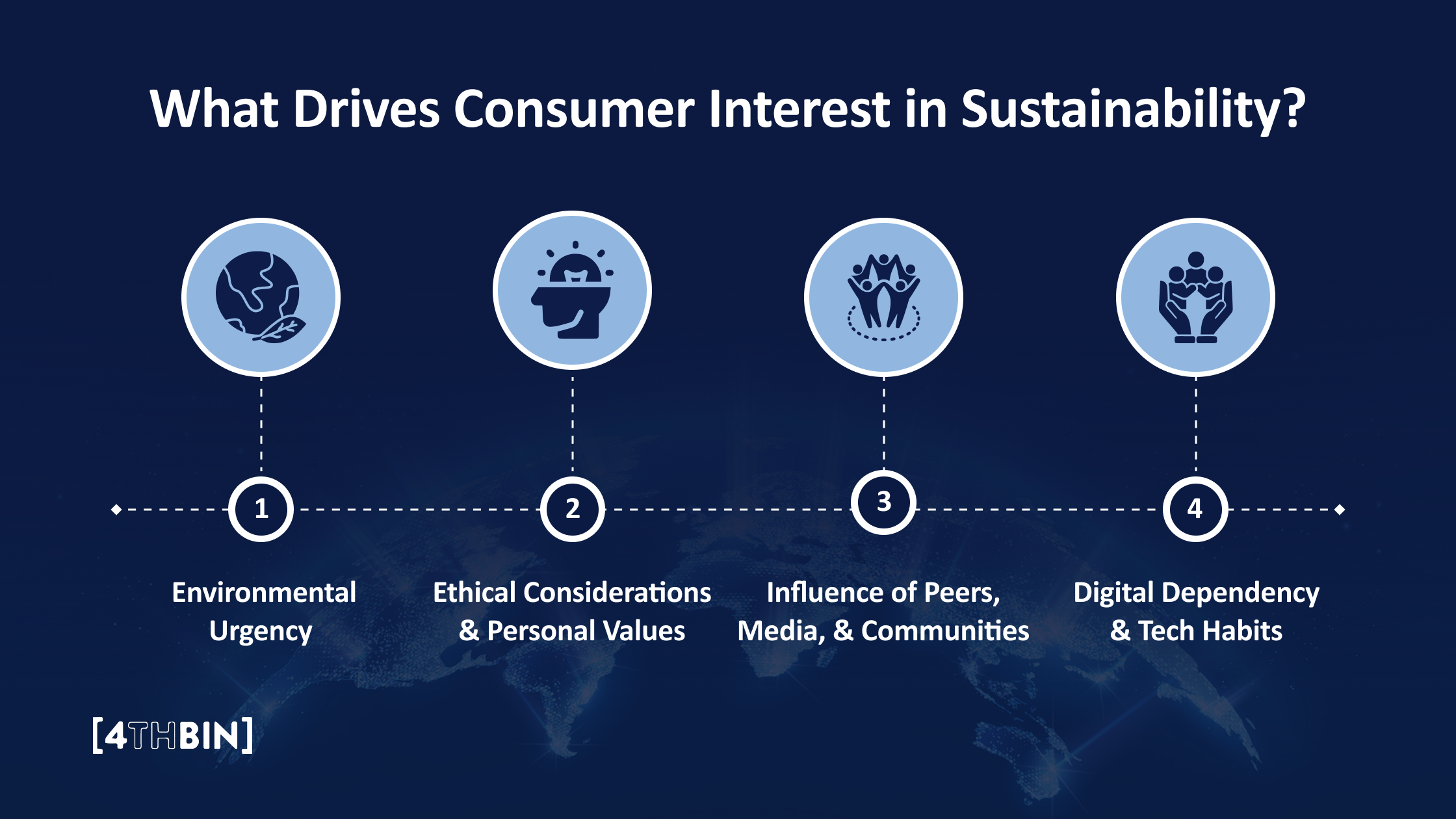
The growing focus on sustainability isn’t just a passing trend—it’s being driven by real-world concerns that affect how people live and what they expect from businesses. Rising climate anxiety, growing awareness of pollution and resource waste, and the push for ethical practices shape consumer behavior.
At the heart of it, people are asking deeper questions about the impact of their choices, and businesses are increasingly expected to have good answers. Here are a few factors that drive consumer interest in sustainability:
Environmental Urgency
The climate crisis is no longer an abstract threat. It is visible, immediate, and personal. From extreme weather events to rising pollution levels, people are witnessing the effects of environmental degradation in their daily lives. This awareness pushes consumers to think about how their habits—from commuting and clothing to their electronics—contribute to the planet’s health. Products and services that help reduce environmental harm naturally stand out.
Ethical Considerations & Personal Values
Sustainability also taps into ethical consumption. People want to support companies that care about more than just profit. That includes ethical sourcing of materials, fair labor practices, low-impact production, and responsible end-of-life management. For many, spending money has become an act of activism, and they’re more likely to align with brands that demonstrate clear, value-driven commitments.
Influence of Peers, Media, & Communities
Social proof plays a powerful role. With sustainability trending across social media, people are increasingly exposed to climate-focused content, influencer recommendations, and community-driven initiatives. These platforms amplify accountability and create pressure, both on individuals and companies, to be more conscious in their choices.
Digital Dependency & Tech Habits
Ironically, while consumers care about sustainability, they also buy and discard tech at a rapid pace. The demand for new devices fuels a cycle of production and waste. But this digital dependency also makes people pause: What happens to my old phone? My retired work laptop? The server we no longer use at our office? These questions are beginning to shape new buying and disposal behaviors, especially when consumers are given clear, responsible options.
In short, sustainability is no longer about doing the bare minimum. Today’s consumers expect transparency, action, and real progress. And they reward the brands that deliver it with their trust, loyalty, and dollars.
Sustainability and Brand Loyalty: What the Data Says
Sustainability influences purchasing decisions and drives long-term brand loyalty. Consumers aren’t just looking for good products anymore; they want to feel good about the products they use and the companies they support. Here is data that backs this up:
Consumers Are Willing to Pay More
A 2023 McKinsey & NielsenIQ study found that products making ESG-related claims grew 1.7x faster than products that didn’t, and nearly half of consumers are willing to pay more for sustainable alternatives. 75% of millennials say they consider sustainability when purchasing. For brands, that’s not just a feel-good trend; it’s an opportunity to drive revenue.
Shared Values Drive Customer Retention
Sustainability isn’t a one-time selling point. When done right, it builds loyalty over time.
A report indicates that 77% of businesses observe increased customer loyalty when implementing sustainability initiatives.
Consumers are more likely to stick with a brand they see as responsible, ethical, and transparent. SAP Emarsys reports that 30% of consumers in 2024 are driven by ethical loyalty, meaning they remain committed to brands that align with their ethical values, reflecting a 25% growth since 2021. And when brands go beyond greenwashing—by taking real action and backing it up with third-party certifications or verifiable results—customers notice. That trust creates stickiness.
The Power of Public Perception
Sustainable brands also benefit from stronger word-of-mouth and advocacy. When a company publicly aligns with environmental or social causes, consumers are more likely to share, recommend, and publicly support them.
In today’s digital economy, that kind of social currency is invaluable. A survey highlighted by Environment & Energy Leader found that 44% of consumers feel a deeper emotional connection to companies that adopt and demonstrate sustainable business practices.
However, 48% of study respondents reported they can only “sometimes” trust a brand’s sustainability claims, emphasizing the importance of transparency and authenticity in sustainability communications.
Authenticity Matters More Than Appearances
It’s important to note that consumers can spot performative sustainability.
Greenwashing (making sustainability claims without substance) can backfire, damaging a brand’s reputation and losing customer trust. Consumers expect transparency: What are you doing? What impact are you making? Who are you partnering with? Are you walking the talk?
Studies show that 74% of consumers are more likely to purchase from a company that is transparent about its sustainability practices and frequently shares updates on progress toward sustainability goals. This is where sustainability connects directly with accountability. Companies that embed sustainability into their operations, communications, and even customer experience—not just their marketing—are the ones building lasting relationships with conscious consumers.
Yet, many brands still overlook one area of being genuinely sustainable: how they handle technology after use. That brings us to the next section—the role of e-waste in responsible consumption.
The Overlooked Side of Sustainability: E-Waste
When most people think of sustainability, they picture renewable energy, plastic-free packaging, or ethical supply chains. But one critical area often flies under the radar—how we dispose of the technology we rely on every day. E-waste is one of the fastest-growing environmental issues in the world, yet it's still rarely part of the mainstream sustainability conversation.
In 2022, the world generated 62 million metric tons of e-waste—expected to rise to 82 million tons by 2030, according to the Global E-Waste Monitor 2024. That’s more than double the amount generated just over a decade ago. Most of this waste ends up in landfills or informal recycling centers, where it causes severe environmental and health risks.
However, the most alarming part is that only 22.3% of that e-waste is formally collected and recycled through proper channels. The rest is either dumped or processed in ways that expose toxic substances to the environment, pollute soil, contaminate water, and release harmful emissions.
E-waste is also a Data Risk
Old electronics carry more than environmental risks. They often hold sensitive personal or corporate data. Improper disposal of servers, laptops, hard drives, and mobile devices can lead to serious data breaches and compliance violations. Especially for businesses, e-waste isn’t just a sustainability issue; it’s a security risk. Responsible e-waste recycling is more than green—it’s about being safe, compliant, and future-ready.
As consumers become more environmentally conscious, they’re also starting to question what happens to their devices after they’ve upgraded. Businesses that offer answers and solutions build trust. Yet, many companies still overlook this part of the sustainability chain. They talk about reducing packaging or using less paper but rarely about what happens to aging tech.
In truth, sustainability isn’t complete without a responsible end-of-life strategy for electronics. That’s where companies like 4THBIN, an e-waste recycling company, play a crucial role.
How Businesses Can Align with Consumer Values
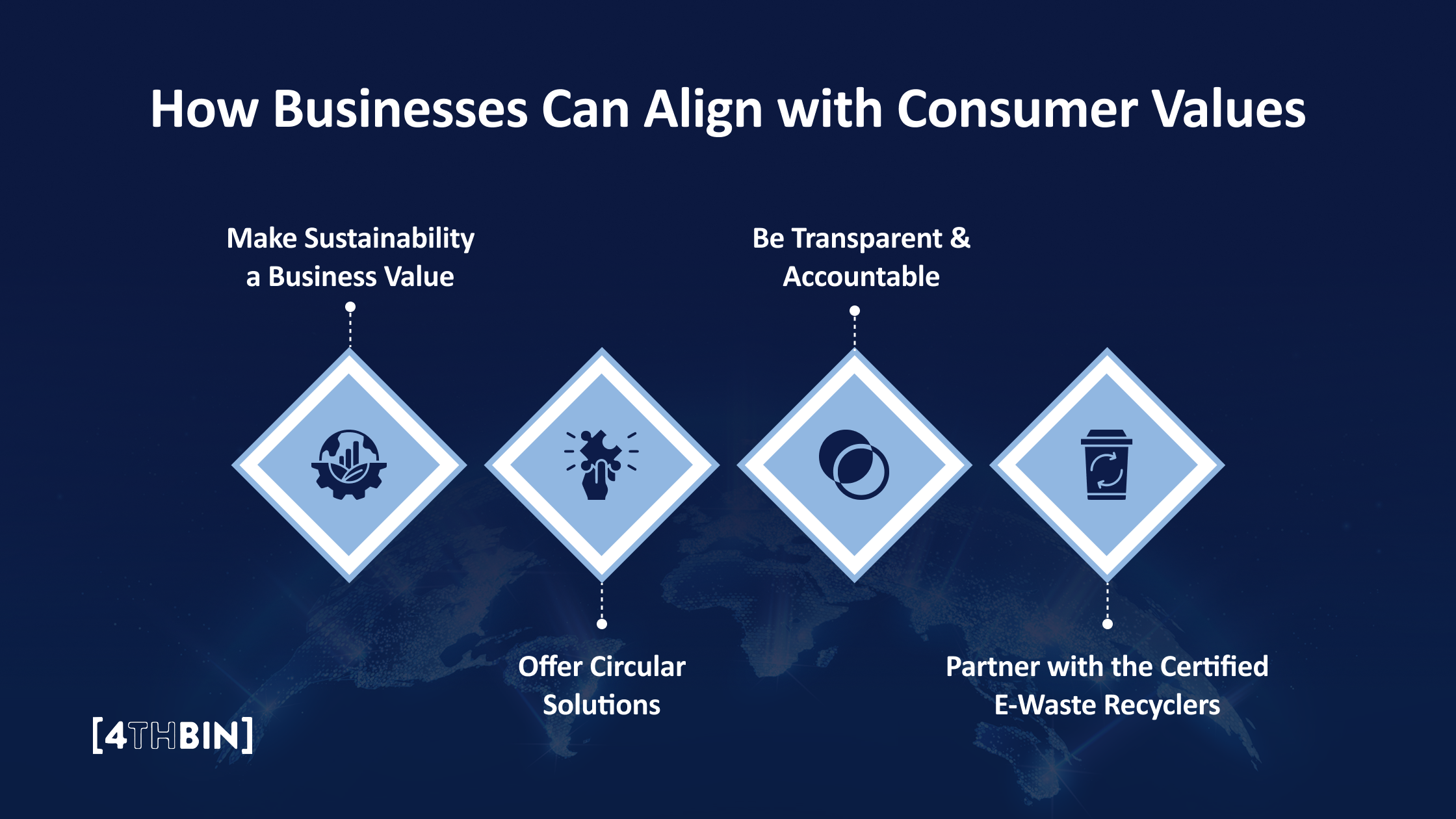
As sustainability becomes a critical factor in consumer decision-making, businesses can meet expectations and lead by example. Here are some ways companies can take meaningful, visible steps to show they’re paying attention, acting responsibly, and contributing to a healthier future.
Make Sustainability a Business Value
Consumers notice when sustainability is baked into a company’s operations—not just its marketing. From office practices and procurement policies to vendor selection and product development, every business decision is a chance to reduce environmental impact. The most trusted brands don’t treat sustainability as a campaign. They make it a core value.
Offer Circular Solutions
Customers care deeply about the shift toward a circular economy—where products are reused, repaired, or recycled. Whether it’s offering a take-back program, extending the life of your products, or ensuring proper end-of-life disposal, businesses that close the loop build long-term credibility. For tech-focused companies, that means making sure e-waste is handled responsibly.
Be Transparent & Accountable
Honesty matters. Consumers expect clear communication about what companies are doing to reduce their footprint. That includes public goals, progress updates, and partnerships with certified organizations. And when companies own up to areas they’re still working on, it builds trust. Authenticity beats perfection every time.
Partner with the Certified E-Waste Recyclers
Businesses don’t have to do everything themselves. Strategic partnerships can help companies meet sustainability goals faster and more effectively. For instance, working with a certified e-waste recycling partner like 4THBIN ensures that your old electronics are handled in a secure, compliant, and environmentally sound way—protecting both the planet and your data.
Aligning with consumer values is not just about what you sell. It’s about how you show up—ethically, transparently, and with real impact. And that impact should extend from the first product interaction to the last step of its lifecycle.
Make Your Sustainability Promise Count with 4THBIN
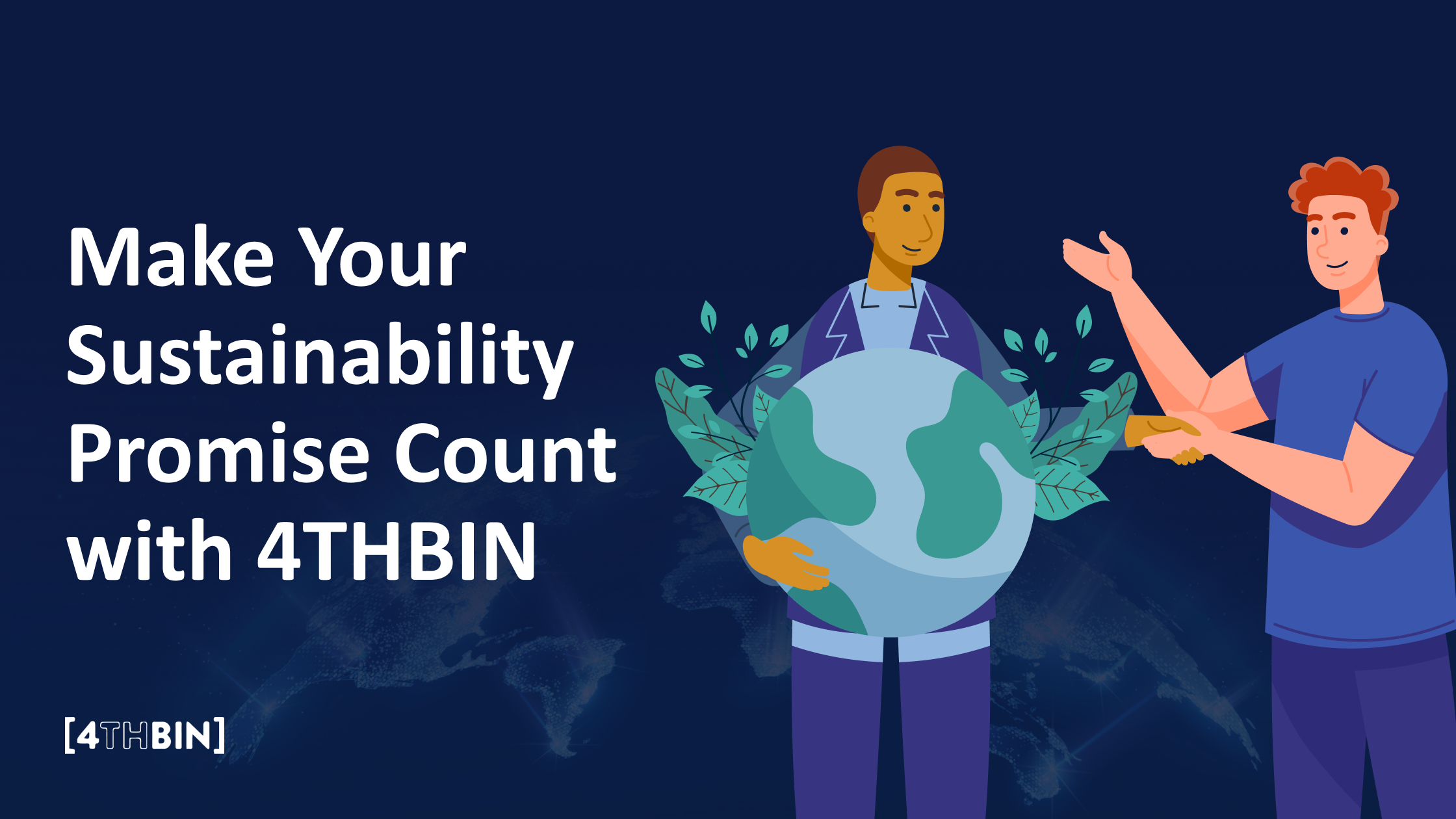
Sustainability is now a consumer expectation, not a trend, and it includes how businesses manage tech waste. With 4THBIN ’s e-recycling solutions, organizations can be assured of secure, compliant, and environmentally responsible electronic waste disposal.
With over a decade of experience, 4THBIN has partnered with more than 10,000 organizations, including Fortune 100 companies and small businesses, to transform e-waste challenges into opportunities. We make the process seamless, offering businesses a way to turn a potential liability into an opportunity for leadership in sustainability and responsibility.
Our certified data destruction services ensure that sensitive information is completely safeguarded, eliminating the risks of data recovery associated with improper disposal. From secure RemoteReturn mail-in options to convenient on-site collection, our customizable solutions allow you to choose the plan that best suits your organization’s needs.


